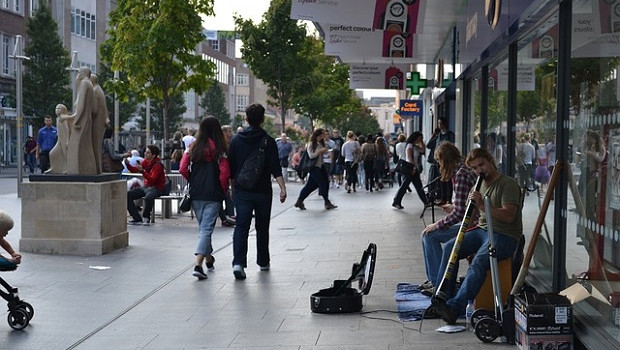Business optimism tumbles amid soaring costs

Business optimism has slumped, a closely-watched survey showed on Thursday, after cost inflation soared to fresh highs.
The flash reading for March’s S&P Global CIPS UK PMI Composite Index was 59.7 in March, against 59.9 in February. Consensus had been for 57.5.
Within that, the services PMI Business Activity Index hit a nine-month high of 61.0, up on February’s 60.5, boosted by strong demand for travel, leisure and entertainment following the relaxation of Covid restrictions.
But that was largely offset by weakness in the manufacturing sector, which was hit by ongoing supply shortages and greater caution from clients. The output index fell to 52.6 from 56.9, while the PMI slipped to 55.5 from 58.0, a 13-month low.
Business optimism also tumbled, hitting a 17-month low, after escalating fuel, energy and staff costs resulted in the steepest rise in prices charged since the index began in November 1999. Respondents also flagged concerns that the war in Ukraine could dent already-fragile supply chains and hurt customer demand.
Chris Williamson, chief business economist at S&P Global, said: "The outlook darkened as concerns over Russia’s invasion exacerbated existing worries over soaring prices, supply chains and slowing economic growth.
"The survey indictors point to potentially sharply slower growth in coming months, accompanied by a further acceleration of inflation and worsening cost of living crisis, which paints an unwelcome picture of stagflation for the economy in the months ahead."
Duncan Brock, group director at the Chartered Institute of Procurement and Supply, said: "Though private sector business had been travelling along quite nicely in recovery since the beginning of the year, a hard brake turnaround in confidence and soaring prices held back further gains in March.
"Manufacturers reported unpredictable delivery times as some products were easy to get hold of while others disrupted production lines by failing to materialise."
Gabriella Dickens, senior UK economist at Pantheon Macroeconomics, said: "Businesses appear to be concerned about the outlook following Russia’s invasion of Ukraine and the intensifying squeeze on real households’ incomes. Respondents also raised concerns that rising prices…were starting to weigh on demand.
"All told, we continue to think that GDP rose by 0.9% in the first quarter. But with Covid-related health spending set to be wound down, and the squeeze on real incomes about to intensify in April, GDP probably will fall by about 0.2% in the second quarter."